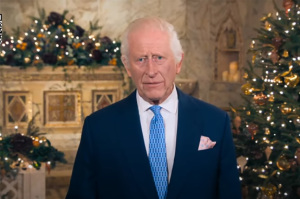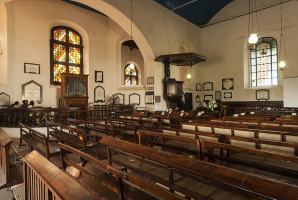Penn State Scandal: Christian Leaders Say Everyone Must Protect Children
The charges of child sexual assault and the alleged cover-up revolving around the Penn State University football team are pushing Christian leaders throughout the U.S. to respond with warnings and advice to pastors and congregations on how to protect children.
One such response came from evangelical leader Dr. Thom Rainer, who is president and CEO of LifeWay Christian Resources, an arm of the Southern Baptist Convention. Rainer addressed pastors, youth leaders, and lay leaders in a post published on his website Thursday that outlined five “absolutely necessary steps that will avoid problems before they occur” while protecting children from sexual predators.
The LifeWay publishing executive, who describes himself as an avid college football fan and devoted family man, also wrote that “the university’s sexual abuse scandal has saddened and angered me, because it is everyone’s job to protect our children.”
“In Coach Joe Paterno’s case, he reported the alleged abuse to his ‘chain of command,’ and apparently absolved himself of responsibility. But those to whom he reported apparently chose to protect their university and themselves rather than the child involved. If that is the case, it's wrong – and something churches must avoid,” Rainer stated.
“It doesn’t take a football fanatic or a genius to figure out the right thing to do – in all cases – is to protect our children,” he added. “The right response is to intervene by force at the moment, and with the police immediately thereafter.”
LifeWay Research President Ed Stetzer told The Christian Post the subject of child protection at churches is uniquely important.
“The issue is essential because often predators are attracted to churches. They are places that are supposed to be safe so that is where predators go,” Stetzer said. “We must be aware. We must create systems to protect children and we must protect future victims by reporting current accusations.”
There are not a lot of reliable statistics on sexual abuse within churches, Stetzer said. However, most pastors know at least one person and one church that has been hurt by sexual abuse, he noted. “It's widespread, and pastors need to teach their churches about how to protect children and how to respond when bad things happen.”
“Protecting children is so important that we have to resist the idea of ‘let's address this ourselves.’ That's illegal and it's also unwise,” Stetzer explained.
Jerry Sandusky, former Penn State football defensive coordinator, has been accused of sexually assaulting eight boys over the course of 15 years. According to a grand jury report, he was introduced to the boys through The Second Mile, a foster home designed to help troubled boys, which he founded.
Joe Paterno, who served as head football coach at Penn State for the last 46 years, was fired this week for failing to take enough action after learning of the alleged abuse in 2002. Though he alerted his superiors, he, along with other school officials, failed to report the abuse to the police.
According to the National Sex Offender Public Website (nsopw.gov) only 30 percent of the cases of sexual abuse were reported to authorities, Rainer stated. “That means more than two-thirds of abuse cases are not reported, so that's where we as church leaders start,” he wrote in his post.
The steps Rainer suggests church leaders take to protect children are:
1. Conduct a background check on every current and future worker. LifeWay partners with BackgroundChecks.com to offer this service. Never involve someone in ministry without a background check.
“Of all the crimes against children in the U.S. every year, thousands will occur within the walls of churches and youth centers,” said Matthew Robbins with BackgroundChecks.com. “With crime and abuse at an all-time high, churches must develop hiring programs that work to prevent dangerous situations before they occur.”
2. Implement a 6 months/2 people rule. This simple policy states that anyone working with children or youth must be an active member of your fellowship for at least six months before assuming a position of leadership, and that there will be at least two adults in the room with minors at all times. This rule extends outside the walls of where you hold your services, to include no unescorted car rides home. As inconvenient and radical as this approach may sound, these two guidelines show predators your children are not easy targets at your church.
3. Conduct regular mandatory staff and volunteer training. Bring in experts to educate you and your workers about safety “to-dos” and how to recognize the signs of a predator. Almost every denomination has resources available to help fight the scourge of sexual predators
4. Require all volunteers to submit an application to serve. This process may seem like a formality, but a proper workflow ensures that the right staff sees every application before placing the responsibility and safety of our children into someone else’s hands. This simple step should be followed up with a face-to-face interview. Churches hold auditions for their worship team. Why not do so for your children’s ministry volunteers?
5. Pray for your workers. Pray for your children. And, pray God will provide the right people.
No church, no ministry, and no denomination is exempt from the risk of predators seeking to harm those who are most vulnerable. It’s our responsibility as leaders to decide foremost to protect our children.
Rainer concluded his statement to church leaders by writing, “So, let your first impulse be to protect children, not reputation. When that is the priority, all else is secondary. Penn State missed that and more children suffered. Make sure your church never makes the same mistake.”





























